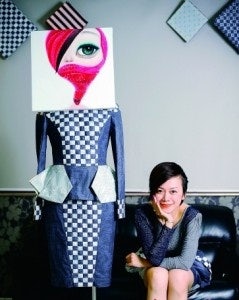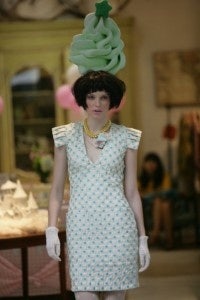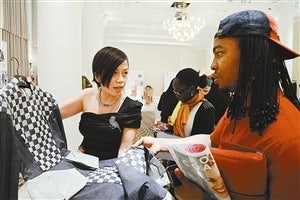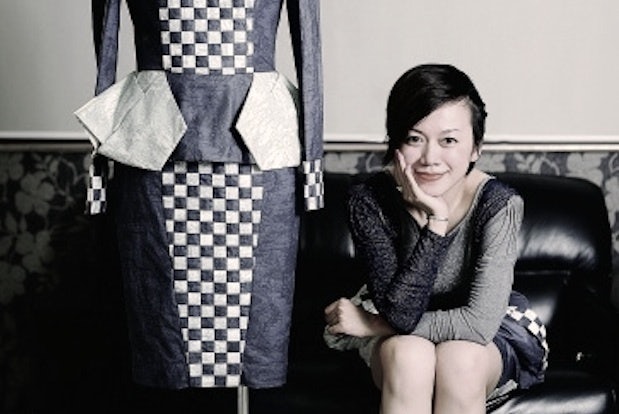Shenzhen's Home-Grown Design Community Rising In Earnest#

Absent Beijing's world-famous arts scene or the cosmopolitanism of Shanghai, Shenzhen -- the southern Chinese all-business-all-the-time boomtown -- isn't typically associated with China's burgeoning home-grown, high-end fashion industry. Associated more with the low-end, mass-produced fast-fashion churned out at nearby factories, Shenzhen, to the surprise of many, is actually home to a small community of high fashion hopefuls, building their own labels in earnest far from the highly publicized runway shows and flagship openings taking place elsewhere in China.
So what characterizes Shenzhen style? Led by young designers like
Qiu Zihao#
(邱梓毫) and London-trained
Zhu Weite#
(朱威特), Shenzhen's fashion scene is known for a low-key but distinctive flavor, with up-and-coming designers being idealistic in their aim to raise the city's fashion cred while still leveraging Shenzhen's advantages as a manufacturing base. Along with Qiu and Zhu, one of the most interesting young Shenzhen designers to recently hit the scene is Deng Huanhuan (邓欢欢), whose retro-infused designs have struck a chord with the city's "post-80s" and "post-90s" generation fashionistas.
Influenced by everything from 1920s Art Deco to billowing '50s skirts, '70s disco wear and '80s neon tights, Deng's designs echo yet re-interpret retro mainstays while infusing them with her own, very Chinese aesthetic.
From China's Fashion Times (服装时报) -- translation by Jing Daily team:
Though reverential towards classic design, Deng Huanhuan looks to be more personality-driven in her branding. Calling her label "
Grace Deng
," the designer hoped to connote elegance and timelessness, reflecting brand tradition and modernity. Not retro in the strictly European style, Deng Huanhuan's designs are boldly tailored, using both traditional and cutting-edge manufacturing techniques. "I don't like to follow trends, whatever designs are popular right now. My designs are split up into two series: special custom pieces and more market-influenced items based on customer feedback on the kinds of tailored clothing they like," says Deng.
In addition to customer feedback, life, travel and old movies are sources of inspiration for Deng Huanhuan. Her latest A/W 2012 series was influenced by the work of her favorite artist Salvador Dali and his interpretation of surrealism and dreams. "Everyone has a dream, and their dreams distort the reality that surrounds them," said Deng, "so I called my A/W 2012 series 'Distort the Truth.'"
At the age of 16, Deng Huanhuan was sent to the UK for high school. There, her hobbies included painting, and upon graduation she decided to study fashion design at University. After finishing her fashion studies, Deng worked for several large brands, where she learned many aspects of the fashion industry, working in everything from the design department to marketing and sales departments, gaining a great deal of experience. These experiences, she says, laid the groundwork for her career upon returning to China. "I was really fortunate to work in so many different departments for other companies before becoming a designer myself," Deng says, "It gave me the chance to learn about and understand the different things that go into building and expanding a brand."
To Deng, the fabric used is the soul of her brand. "Fabric can give a brand attitude. Like when you use cotton or other natural fibers, it helps people have a more healthy attitude towards life." She thinks that natural fibers are the "purest" and most comfortable fabrics. Spending nearly a decade in a foreign country also trained Deng Huanhuan how to think broadly about clothing design and materials. She believes that the way to go for her brand is to be completely original, and as such uses local fabrics, local designers and original designs rather than purchasing mostly imported materials.
As Deng explains, "Many designers want to purchase imported fabrics to increase the added value of their clothing, but the real added value comes from the spirit of the designs rather than the price of the materials. I think designers have a responsibility to support the local community."


